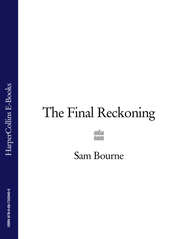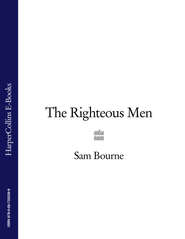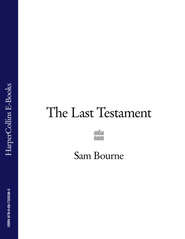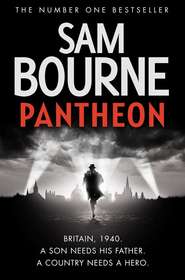По всем вопросам обращайтесь на: info@litportal.ru
(©) 2003-2024.
✖
Sam Bourne 4-Book Thriller Collection
Автор
Год написания книги
2018
Настройки чтения
Размер шрифта
Высота строк
Поля
Next he passed a black man the size of a large refrigerator, with a little girl in one hand and a cigarette in the other. Will’s confusion returned. He was now on Empire Boulevard, noticing Indian restaurants and vans decked out in the national flag of Trinidad and Tobago. Was he in the Hassidic neighbourhood or wasn’t he?
He turned off, into residential streets. The houses were large brownstones or made of a firm, red brick, as if once, in a long-ago Brooklyn, they had been positively posh. Each had a few steps up to the front door, which sat alongside a porch. In other American homes, Will guessed, these porches might feature a swing chair, perhaps a few lanterns, certainly a pumpkin at Hallowe’en and, very often, the Stars and Stripes. In Crown Heights they looked mainly unused, though even here Will spotted that word again – Moshiach – on window stickers, and once on a yellow flag with the image of a crown, which Will took to be some kind of local symbol.
Directly above each porch, one storey up, was a veranda, complete with wooden balustrade. Will thought of Beth, held behind one of these front doors: his legs suddenly tensed with the urge to run up the stairs of each house and knock down door after door, until he had found his wife.
Coming towards him was a group of teenage girls in long skirts, pushing strollers. Behind them were perhaps a dozen, maybe more, children. Will could not tell if these girls were older sisters or exceptionally young mothers. They looked like no women he had ever seen before, certainly not in New York. They seemed to be from a different era, the 1950s perhaps or the reign of Queen Victoria. No flesh was exposed, the sleeves of their white, prim blouses covered their arms; their skirts fell to their ankles. And their hair: the older women seemed to wear it in a preternaturally neat bob, one that barely moved in the wind.
Will did not look too hard; he did not want anyone to think he was staring. Besides, he no longer needed confirmation. This was Hassidic Crown Heights, all right. As he walked, he honed his cover story. He would say he was a writer for New York magazine doing a piece for its new ‘Slice of the Apple’ slot, in which outsiders wrote dispatches from different segments of New York’s wonderfully diverse community, blah, blah. He would pose as the safari-suit explorer, sent to note down the curious ways of the natives.
And this was certainly an alien landscape. Will searched desperately for something that might give him a handle – an office perhaps, where he might discover who ran this place. Maybe he could explain what had happened and they would help him. He just needed a foothold, something in this strange place he at least understood.
But there was nothing. Every bumper sticker seemed to convey a message that might be worth decoding, but was indecipherable. Light Sabbath candles and you’ll light up the world! There was an ad for a show: Ready for Redemption. Even the shops seemed to be part of this religious fervour. The Kol Tov supermarket carried a slogan: It’s all good.
He kept walking, stopping at a store front whose window was full of notices rather than goods. One leapt out at him straightaway.
Crown Heights is the neighbourhood of the Rebbe. Out of respect to the Rebbe and his community we request that all women and girls, whether living here or visiting, adhere at all times to the laws of modesty, including:
Closed neckline in back, side and front. (Collarbone should remain covered)
Elbows covered in all positions
Knees covered by dress/skirt in all positions
Proper cover of the entire leg and foot
No slits
Girls and women who wear immodest garments, and thereby call attention to their physical appearance, disgrace themselves by proclaiming that they possess no intrinsic qualities for which they should garner attention . . .
So that explained the dress code. But the word that leapt out at Will had nothing to do with necklines or slits. It was ‘Rebbe’. This sounded like the man Will had to meet.
He looked up to get his bearings, noticing for the first time the street sign. Eastern Parkway. He had barely walked ten yards when he saw another sign: Internet Hot Spot. He had arrived.
His stomach heaved as he walked in. This was surely the scene of the crime. Someone had sat at one of these cheap blondwood desks, surrounded by fake wood panelling and grey floor tiles, and typed the message announcing the theft of his wife.
He stared hard at the room, hoping his would suddenly become a superhero’s gaze, magically able to absorb every detail, seeing with X-ray vision the clues that must be here. But he only had his own eyes.
The room was a mess, not like the latte-serving internet cafés he knew from Manhattan or even his own patch of Brooklyn. There was no espresso or mocha here, no coffee of any kind in fact. Just bunches of exposed wires, peeling signs on the wall, including a picture of an elderly, white-bearded rabbi – a face Will had now seen at least a dozen times. The desks were arranged haphazardly, with flimsy partitions attempting the separation into individual workspaces. At the back were a stack of empty computer cartons, still leaking their Styrofoam packaging, as if the owners had simply bought the equipment, unloaded it and opened for business the same day.
Will got a few upward glances as he came in, but it was not nearly as bad as he had feared. (He had visions of his occasional student forays into out-of-the-way pubs in big English cities, places so hostile the locals seemed to fall into an instinctive, sullen silence the moment a stranger was among them.) Most of the customers in the Internet Hot Spot seemed too preoccupied to be interested in Will.
He tried to assess each of them. He noticed the two women first, both wearing berets. One was sitting side-saddle on her stool, allowing her to keep one hand on her pram, rocking her baby to sleep as she typed with the other. Will ruled her out immediately: a pregnant woman could surely not have kidnapped his wife. He eliminated the other woman just as quickly: she had a toddler on her lap and wore perhaps the most exhausted expression he had ever seen.
The rest of the terminals were either empty or used by men. To Will, they all looked the same. They wore the same rumpled, dark suits, the same open-necked white shirts, and the same wide-brimmed black trilby hats. Will looked hard at each one in turn – Did you kidnap my wife? – hoping that a guilty conscience might at least send one of them blushing or rushing out of the door. Instead they kept staring at the computer screens and stroking their beards.
Will paid his dollar and sat at a screen himself. He was tempted to log onto his own email, so that anyone checking him out and reading over his shoulder would immediately know who he was. He half-wanted them to know that he was here, that he was onto them.
Instead, he took time to absorb what was in front of him. Each terminal was programmed to show the same home page, the website of the Hassidic movement. There was a tracker on the left of the screen, scrolling birth announcements: Zvi Chaim born to the Friedmans, Tova Leah to the Susskinds, Chaya Ruchi to the Slonims. At the top of the screen was a banner, showing the same face that hung on the wall, though this time it appeared to be dissolving into a picture of the Jerusalem skyline. Underneath ran the slogan: Long Live the Rebbe Melech HaMoshiach forever and ever.
Will read the line three times, as if trying to crack a cryptic crossword clue. He had no idea about melech but Moshiach was now very familiar, even if he had not seen it in this form. The word that mattered was Rebbe. The man in the picture that hung everywhere – an ancient rabbi with a biblical white beard and a black trilby pressed firmly on his head – was their leader, their Rebbe.
To Will, it felt like a breakthrough. All he had to do was find this man and he would get some answers. A community like this, he was sure, would be hierarchical and disciplined: nothing would happen without the nod of the top man. He was like a tribal chief. If Beth had been taken by the men of Crown Heights, the Rebbe would have given the order. And he would know where she was now.
Will left hurriedly, anxious to find this Rebbe as quickly as he could. As he got back onto the street, he noticed that others were moving at similar speed; everyone seemed to be in a rush. Maybe something was going on? Maybe they had heard about the kidnapping?
Within a block or two he found what he was looking for: a place where people gathered to eat or drink. For reporters, cafés, bars and restaurants were essential locations. If you needed to talk to strangers, where else could you start? You could hardly knock on people’s front doors; stopping people in the street was always a last resort. But in a café, you could start a conversation with almost anybody – and find out plenty.
There were no cafés here, no bars either, but Marmerstein’s Glatt Kosher would do. It was more of a dining room than a restaurant. It looked like a canteen, with hot food at a counter served by large, grandmotherly women. Their customers seemed to be gaunt, pale men, wolfing down chicken schnitzel, gravy-soaked potatoes and iced tea as if they had not eaten for twenty-four hours. It reminded Will of the refectory at his public school: big women feeding thin boys.
Except this scene was much more bizarre. The men might have stepped out of a picture book of seventeenth-century eastern Europe and yet several of them were yammering away into cell phones. One was simultaneously tapping into a BlackBerry and reading the New York Post. The collision of ancient and modern was jarring.
Will queued up to get his own plate, not that he felt like eating; he just needed an excuse to be there. He hesitated over his choice of vegetable, overcooked broccoli or overcooked carrots, and was soon upbraided by one of the babushkas behind the counter.
‘Hurry, I want to get home for shabbos,’ she said without a smile. So that explained the rush: it was Friday afternoon and the Sabbath was coming. Tom had mentioned something about that as Will left, but he had not taken it in: he literally did not know what day it was. This was bound to be bad news. Crown Heights would surely close down in the next hour or two; no one would be around and he would find out nothing. He had no choice; he would have to move fast, starting right now.
He found what he needed: a man sitting alone. There was no time for English circumlocution. He would have to deploy the instant, American approach: Hi, how you doing, where do you come from?
His name was Sandy and he was from the West Coast. Both of which facts caught Will by surprise. He had, half-consciously, assumed that these men with their beards and black hats would bear alien names and speak with thick Russian or Polish accents. That had been part of the culture shock of the last hour, the realization that a corner of what could have been medieval Europe lived and breathed in the here and now, in twenty-first century New York. He felt like a novice swimmer who discovers he can no longer touch the bottom.
‘You Jewish?’
‘No, I’m not, I’m a journalist.’ Ridiculous thing to say. ‘I mean, the reason why I’m here is that I’m a journalist. For New York magazine.’
‘Cool. You here to write about the Rebbe?’ He pronounced it Rebb-ah.
‘Yes. Well, among other things. You know, just writing about the community.’
Sandy turned out to be relatively new to Crown Heights. He said he had been ‘a surfer dude’ on Venice Beach, ‘hanging out, taking a lot of drugs’. His life had been a mess until six years ago, when he had met an emissary of the Rebbe who had established an outreach centre right on the oceanfront. This Rabbi Gershon gave him a hot meal one Friday night and that was how it started. Sandy popped in there for the next Sabbath and the next; he stayed overnight with Gershon’s family. ‘You know what was best, better even than the food and the shelter?’ said Sandy, with an intensity Will found awkward in a man he had just met. ‘They didn’t judge me. They just said that HaShem loves every Jewish soul, and that HaShem understands why we sometimes take a roundabout path. How sometimes we get lost.’
‘HaShem?’
‘Sorry, that’s God. HaShem literally means “the Name”. In Judaism, we know the name of God, we can see it written down, but we never say it out loud.’
Will gestured for Sandy to carry on. He explained that he had put his life in the hands of the Rebbe and his followers. He started dressing like them, eating kosher food, praying in the morning and evening, honouring the Sabbath by abstaining from all work or commerce – no shopping, no using electricity, no riding the subway – from sundown on Friday to sundown on Saturday.
‘And did you do anything like that before?’
‘Me? You gotta be kidding. Man, I didn’t know what shabbos was! I ate everything that moved: lobster, crabs, cheeseburgers. My mom didn’t even know what was kosher and what was treif.’
‘And what does she think about, you know, this?’ Will gestured at Sandy’s clothes and beard.
‘You know, it’s kind of a process?’ Upspeak, even here. ‘She found the kosher thing hard; me not being able to eat with her when I visit with her in her home. And now that I have kids, that gets kind of tricky. But the toughest thing for her, without a doubt? When I became Shimon Shmuel, rather than Sandy. She couldn’t get her head round that.’
‘You changed your name?’
‘I wouldn’t really call it changing my name. Every Jew has a Hebrew name already, even if he doesn’t know what it is. It’s the name of our soul. So I like to say that I discovered my real name. But I use both. When I visit my mom, or when I meet, you know, someone like you, I’m Sandy. In Crown Heights, I’m Shimon Shmuel.’
‘So what can you tell me about this Rebbe, then?’











